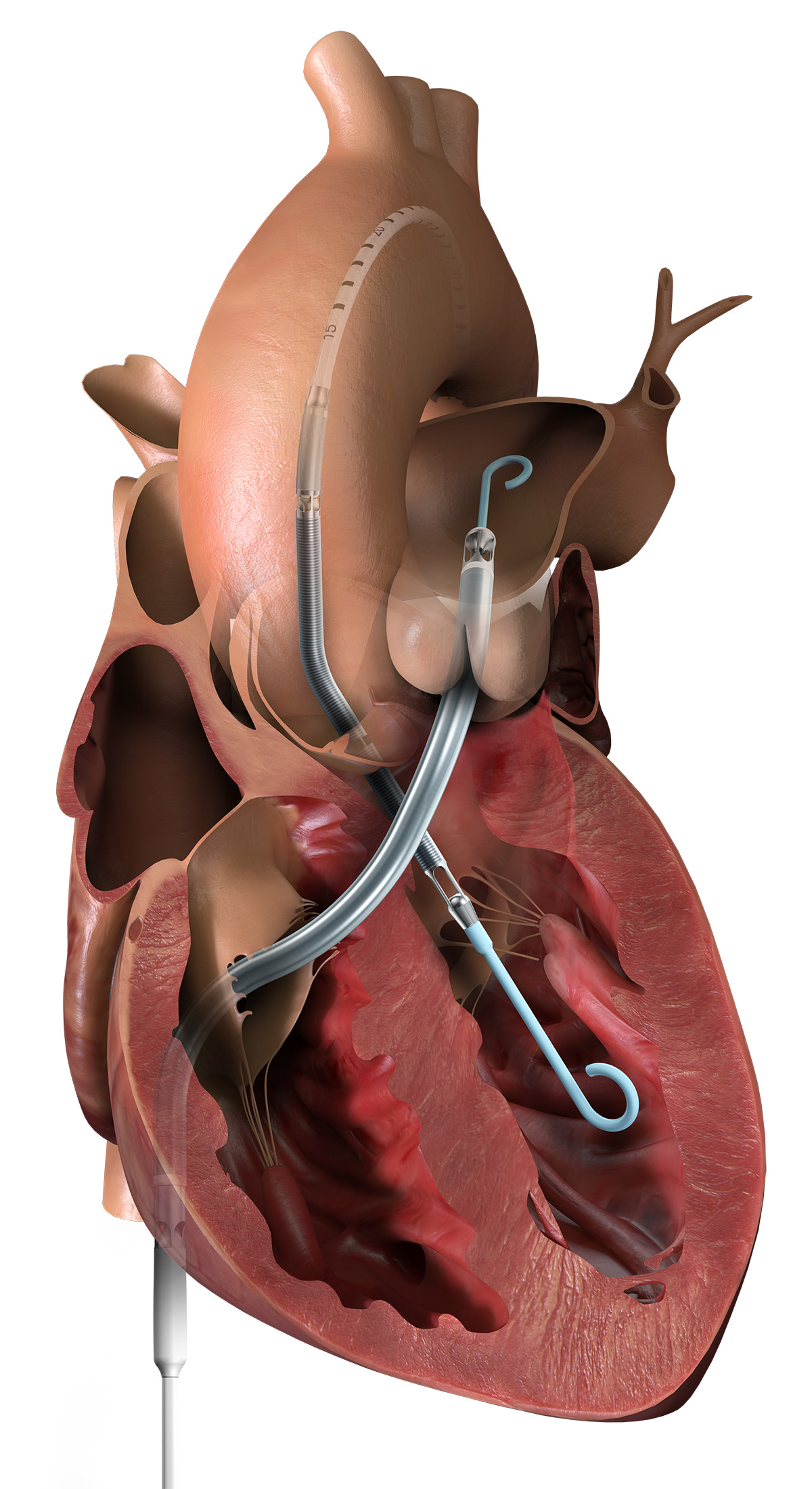A Danvers Company Makes the World’s Smallest Heart Pump
Open heart surgery may be effective, but it goes without saying that it’s an incredibly invasive procedure. Abiomed, a Danvers-based medical device company, has an alternative.
Abiomed manufactures the world’s smallest heart pump, called the Impella. It’s so small—thinner than a pencil—that it can be put on a catheter and inserted through a small hole in the leg, minimizing patients’ side effects and maximizing recovery. “Their heart function improves, they leave the hospital earlier, and they come back half as often for another procedure within 90 days,” says CEO Mike Minogue. “Most important, they feel better.”
Impella is more than just a feat of medical engineering; it’s also the only device on the market dedicated to restoring the heart’s own function and training it to pump blood on its own, rather than replacing it with a new organ. And while Abiomed has existed as a company for more than 30 years, the Impella received FDA approval for use in PCI procedures—which open blocked coronary arteries—in March, opening new doors for the business.
“We are the only company in the world that is trying to enable minimally invasive procedures to help improve or recover the heart muscle, and as a result, you haven’t heard of us,” Minogue says. “With this FDA approval, we are the only safe and effective device for high-risk PCI. In a way, it’s now a license for us to be the standard of care.”
Despite Abiomed’s relatively low profile, Minogue says its devices are already in use in hospitals across the country, including Boston, and by the end of the year they will have treated 36,763 patients—enough to fill Fenway.
And while Minogue is passionate about Abiomed’s mission to improve heart health, he also wants to have an impact on the medical field in another way. Inspired by his own military past, Minogue founded MVPVets, an organization that helps veterans find work and mentors in the medical device industry after they leave the military, in 2012.
“For whatever reason, the medical technology industry has attracted thousands and thousands of veterans, and I think it’s an attraction to the purpose, the 24/7 mission that exists in our industry,” Minogue says. “We wanted to find a way to serve them and put some action behind the words ‘Thank you for your service.'”



